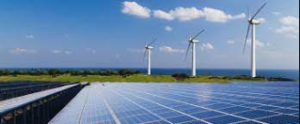Every day we hear from various sources about the energy crisis plaguing the modern world. Governments are constantly taking new measures to combat this critical problem, some of them bringing results but others proving futile. And so, slowly, the energy transition that was once an elusive dream has begun, and is now moving forward at a rapid pace.
For years we have been talking about a future climate change, melting ice caps and global warming threatening our planet. All these years the only solution we understood to exist was the transition to a life based on green, renewable energy and environmentally friendly human habits. But despite all this, nothing has changed. No transition was initiated and people’s habits remained just as harmful to our environment.
And there comes a moment when an unpleasant event, a war between two countries becomes the driving force for the green transition to begin. The war declared by Russia on its neighbour Ukraine has brought about decisive changes in the global energy market. As Russia was the world’s largest exporter of fossil fuels, the restriction of gas supplies to Europe and European sanctions on imports of Russian oil and coal closed one of the world’s most important energy trade routes.

This gave renewable energy the opportunity to grow and gain the world’s trust. European and global policies have changed radically and are now attempting to promote green energy, which is already well established in the market, by all means. “Investment in clean energy is expected to triple by 2030 and gas is in a dead end” says Laurence Toubiana, former French Ambassador for Climate. This is also reflected in the report by the International Energy Agency published a few days ago. According to the organisation, this major change in the energy sector is here to stay and Russian exports of oil and coal will not return to previous levels. At the same time, the report cites a positive scenario for carbon dioxide emissions, predicting that while they will peak in 2025 at 37 billion tonnes, they will fall to 32 billion by 2050. This forecast is positive considering that the projections in previous years were much more discouraging.

